FISU Rector's Forum in Sweden

University officials, professors and rectors together with respected speakers, guests and other interested participants gathered in the Swedish city of Umea on June 12 and 13 for the 4th FISU Rector’s Forum discussing the main theme: University and Community growth through university sport.
Mr Stefan Bergh, the Vice-President of the International University Sports Federation (FISU) and the Honorary President of the Swedish University sports Federation (SAIF), opened the Forum and moderated the event. Alison Odell, FISU 1st Assessor and Chair of the FISU Education Committee welcomed the participants and presented FISU. The two others speakers were the Rector of Umea University, Lena Gustafsson and Sture Espwall, President of SAIF, the National University Sports Federation of Sweden. The latter presented an overview of the activities organised during this year as SAIF is celebrating its 100th anniversary.
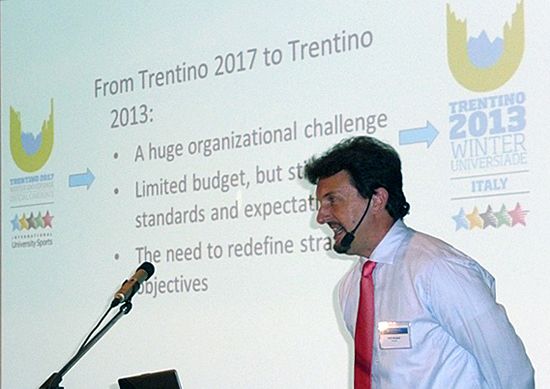
The key note speech was delivered by Baroness Sue Campbell who chaired UK Sport. Her presentation was focused on the key factors for successful partnerships and collaboration between Universities and Elite sport. Mr Martin Doulton, director of sport at Monash University and FISU board member representing Oceania, presented the main theme of this Forum. He spoke on creating a “joie de vivre” throughout sport and team building changing the wording of the “volunteers” from “supporting team”. Within the part of “Innovation and growth” and “Collaborative partnerships” one of the speakers was Mr Paolo Bouquet - the head of the next FISU Conference during the Winter Games in Trento (December 9-10) and the Vice-rector of the University of Trento.
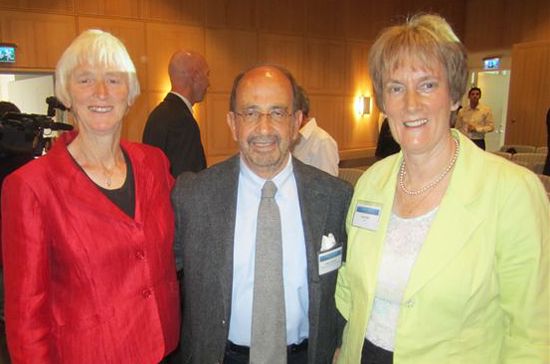
The second day of the FISU Rector’s Conference started with two presentations on partnership support of career management. The participants could listen to two speakers from two different continents and two very successful sport countries, Mrs Yoriko Nogushi from the Japan Sport council and Mr Bernard Franklin from the NCAA (USA). The topic of Dual career was presented on a different perspective. From the Swedish Sport Confederation by Mr Peter Mattsson and Mr Kent Lindhal and by Mr Paul Wylleman form the Vrije Universiteit Brussel (VUB) who explained the different steps and challenges the students-athletes are facing in their sport careers.
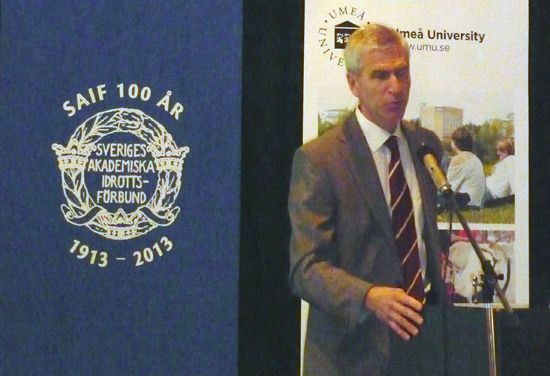
FISU First Vice-President, Mr Oleg Matytsin, who is also the President of the Russian State University of Physical Education, Sport and Tourism in Moscow and Mr Tom Hinch of the University of Alberta spoke on the topic ‘University Sport and Tourism’ in its widest definition. Mr Helmut Schmidt of the University of Kaiserslautern outlined the business model adopted at the Technical University of Kaiserslautern over the last 40 years using sport as a key driver. Mr Magnus Högström, Executive Director of Sports Medicine of Umea, illustrated a comprehensive business model offering co-operation across the city of Umea, the university, and its own research base.
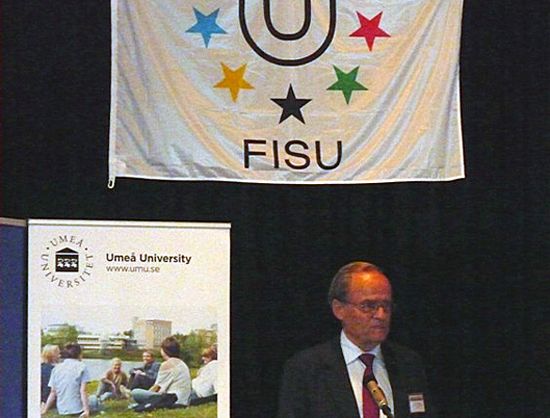
Mr Arne Ljungquist of the Karolinka Institute spoke about leadership and the new challenge of international sport based on his experience as IOC member and former IAAF 1st Vice-President. To his point of view, today’s challenges in sport are: political, environmental, doping, match fixing/illegal betting and gender issues.
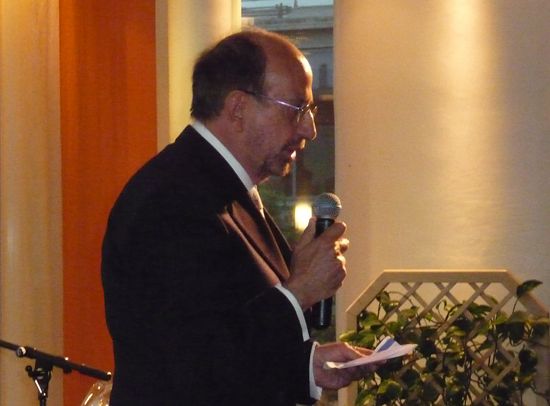
The Forum has seen the attendance of 120 participants from all the 5 Continents representing 35 Countries. The European University Sports Association (EUSA) was represented at the Forum by Mr Alberto Gualtieri, EUSA Honorary President who addressed the participants and congratulated SAIF for their remarkable anniversary.
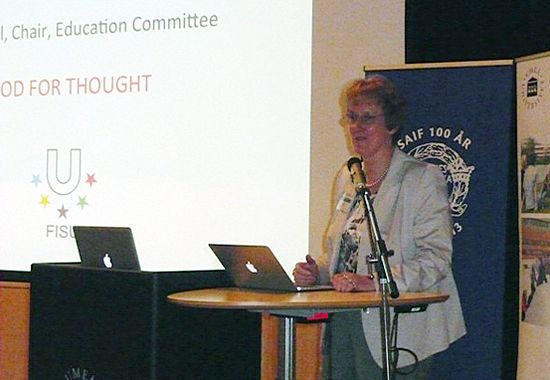
Mrs Alison Odell, Chair of the FISU Education Committee who presented the conclusions, the cross cutting themes of FISU Rectors’ Forum were:
* Transformational power of sport as a tool;
* Leadership and advocacy needs to come from the very top in universities if sport is to transform the student experience and the surrounding community;
* Treat students as partners not customers;
* Collaborative partnerships need to acknowledge the reality of the start point for all partners in a project;
* Universities deserve increased recognition in the partnership role they are able to play in dual career support and should pursue this as a benefit;
* University sport, especially major international or community events, can leverage collaborative partnership across existing business or social interests to support regional growth, but leaders in the education field may need to take the initiative.
More information at www.fisu.net and www.rectorsforum2013.com.
(Photos by K. Gjeloshaj, FISU)
